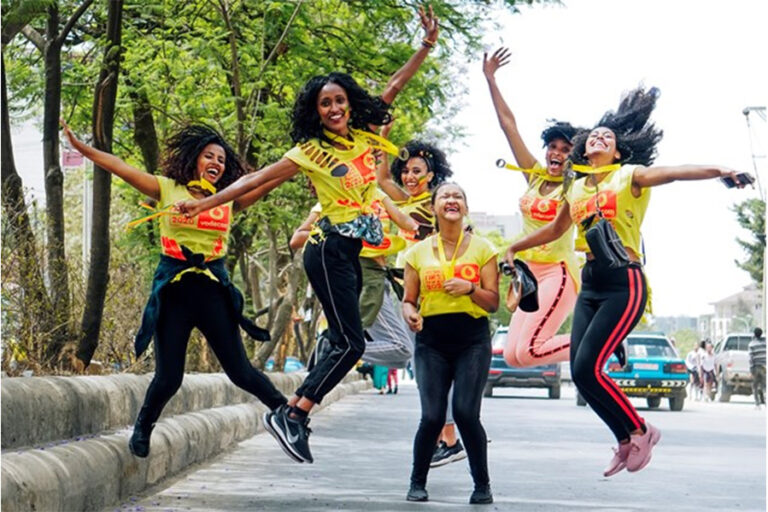Writing in the second century BC, the Greek historian Polybius described a process that is all too familiar today. Politicians use cheap gifts and seductive talk to attract voters who don’t appreciate their freedom, because they have never experienced the abuses or repression of non-democratic governance.
By Federico Fubini
The emergence of illiberal politicians across the West has led to prophecies about the end of democracy. In the United States, Donald Trump is maneuvering to return to the White House in 2025, after attempting to overturn an election that he lost in 2020. In France, not one but two far-right populists are running for president. And in Italy, Matteo Salvini of the League and Giorgia Meloni of the post-fascist Brothers of Italy will be plausible contenders for the premiership when Italians go to the polls in 2023.
Like right-wing political and media operatives in the US, Salvini, Meloni, and Marine Le Pen of the French far-right National Rally have all paid homage to Hungarian Prime Minister Viktor Orbán. They have made no secret of their temptation to pursue his brand of illiberalism if given the chance.
Concerns about the future tend to be molded by our most vivid memories of the past. We learned from our parents and grandparents about the threat of fascism. And in recent years, we have watched authoritarian leaders come to power democratically, only to erode constitutional norms and institutions once in office. This “electoral” model for establishing autocracy thus has come to seem like a potent threat.
But are we worrying about the right kind of democratic decline? In fact, a more immediate risk lies in the descent from democracy to ochlocracy, a term coined by the Greek historian Polybius during the second century BC to describe mob rule. Ochlocracy results from politicians using cheap gifts and seductive talk to attract voters who don’t appreciate their freedom, because they have never experienced the abuses or repression of non-democratic governance. As Polybius explains in The Histories:
“As long as some of those survive who experienced the evils of oligarchical dominion, they are well pleased with the present form of government, and set a high value on equality and freedom of speech. But when a new generation arises and the democracy falls into the hands of the grandchildren (…), they have become so accustomed to freedom and equality that they no longer value them. (…) So when they begin to lust for power and cannot attain it through themselves or their own good qualities, they ruin their estates, tempting and corrupting the people in every possible way. And (…) democracy in its turn is abolished and changes into a rule of force and violence.”
Before Polybius, both Plato and Aristotle also agreed that democracy is potentially vulnerable to ever-changing and easily manipulated public moods. In our time, we call this populism, a label that allows us to shift all the blame for democratic backsliding onto individual populist figures like Trump, Le Pen, and Salvini. But while these politicians have fomented fear of immigrants and polarized public opinion, they are not operating in a vacuum. They owe their political successes to voters (and, in Trump’s case, to many American conservative elites).
Twenty-first-century ochlocracy tends to go beyond classic populism to implicate broader swaths of public life. Three symptoms of this process stand out today. First, mainstream political parties have been hollowed out, with vaguer policy programs and narrower pathways for new leaders to emerge. The Republican Party in the US is a case in point. But in the past two presidential elections, the Democrats also have continued to elevate longtime establishment stalwarts, even when the times seemed to call for new figures and fresh ideas.
In Britain, Prime Minister Boris Johnson commandeered the storied Conservative Party, first by peddling lies about Brexit, and then by feeding the delusion that a divorce from the European Union would be easy and beneficial. It is no surprise that such a leader would feel invulnerable enough to host or attend parties while the rest of the country was in pandemic lockdown.
The situation is no better in Italy, where no mainstream party has any credible internal democratic processes for selecting new leaders or devising a policy program. The parties are so hapless that they regularly need to call in technocrats to manage complex crises, as happened with Prime Minister Mario Monti in 2011-13 and now Mario Draghi. Recent convulsions among and within parties to select a new head of state are further evidence of how dysfunctional Rome’s political class has become. Only by re-electing President Sergio Mattarella, despite his reluctance, could parties break the stalemate.
A second major symptom of democratic decay is the degradation of the media. Democracy suffers when media organizations become partisan, polarized, and shallow (using sensationalism and fear in pursuit of market share). When a society is politically polarized, publishers and editors see a commercial opportunity in goading likeminded segments of the population. Fanning the flames becomes a business model.
Especially in recent years, leading media outlets have found that it pays to take an unflinching position on controversial figures like Trump, Johnson, former Italian Prime Minister Silvio Berlusconi, or Beppe Grillo, the founder of Italy’s populist Five Star Movement. By becoming dependent on polarization, media outlets have fed it, doing little to help form public opinion beyond short-term political conflicts. As Leslie Moonves, then the CEO of CBS, said of Trump’s presidential candidacy in 2016, “It may not be good for America, but it’s damn good for CBS.”
A third symptom is the rise of social-media chatter as a dominant influence on politicians’ views and decisions. As a journalist, I personally know prominent leaders who are addicted to Twitter and spend a considerable part of their days on it. Twitter becomes their reality, while their constituents continue to live in the real world.
A political system with hollowed-out parties is more likely to succumb to such pressures. As the system increasingly fails to address long-term issues, trust in it erodes and public opinion becomes increasingly volatile, resulting in a now-familiar spiral of noise, ineffectiveness, negligent media, aggressive rhetoric, and shortsighted political programs.
This is a formula for ochlocracy. Twenty-two centuries after his death, Polybius has our number.
Federico Fubini, an economics journalist and editor-at-large at Corriere della Sera, is the author, most recently, of Sul Vulcano (Longanesi, 2020).






